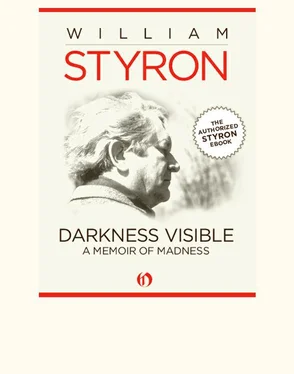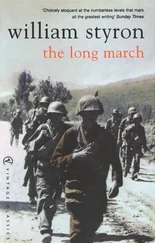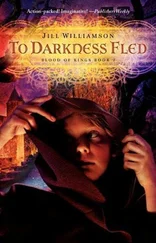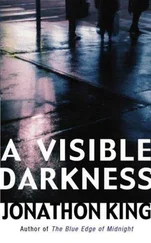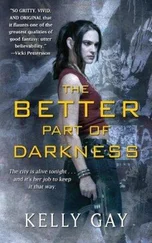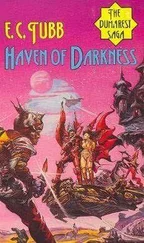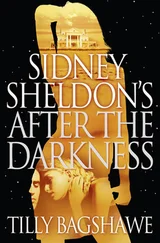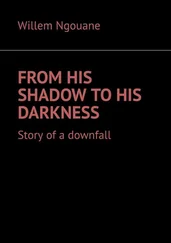William Styron - Darkness Visible
Здесь есть возможность читать онлайн «William Styron - Darkness Visible» весь текст электронной книги совершенно бесплатно (целиком полную версию без сокращений). В некоторых случаях можно слушать аудио, скачать через торрент в формате fb2 и присутствует краткое содержание. Город: New York, Год выпуска: 2010, ISBN: 2010, Издательство: Open Road Integrated Media, Жанр: Биографии и Мемуары, Психология, на английском языке. Описание произведения, (предисловие) а так же отзывы посетителей доступны на портале библиотеки ЛибКат.
- Название:Darkness Visible
- Автор:
- Издательство:Open Road Integrated Media
- Жанр:
- Год:2010
- Город:New York
- ISBN:978-1-936317-29-5
- Рейтинг книги:5 / 5. Голосов: 1
-
Избранное:Добавить в избранное
- Отзывы:
-
Ваша оценка:
- 100
- 1
- 2
- 3
- 4
- 5
Darkness Visible: краткое содержание, описание и аннотация
Предлагаем к чтению аннотацию, описание, краткое содержание или предисловие (зависит от того, что написал сам автор книги «Darkness Visible»). Если вы не нашли необходимую информацию о книге — напишите в комментариях, мы постараемся отыскать её.
Darkness Visible — читать онлайн бесплатно полную книгу (весь текст) целиком
Ниже представлен текст книги, разбитый по страницам. Система сохранения места последней прочитанной страницы, позволяет с удобством читать онлайн бесплатно книгу «Darkness Visible», без необходимости каждый раз заново искать на чём Вы остановились. Поставьте закладку, и сможете в любой момент перейти на страницу, на которой закончили чтение.
Интервал:
Закладка:
Depression afflicts millions directly, and millions more who are relatives or friends of victims. It has been estimated that as many as one in ten Americans will suffer from the illness. As assertively democratic as a Norman Rockwell poster, it strikes indiscriminately at all ages, races, creeds and classes, though women are at considerably higher risk than men. The occupational list (dressmakers, barge captains, sushi chefs, cabinet members) of its patients is too long and tedious to give here; it is enough to say that very few people escape being a potential victim of the disease, at least in its milder form. Despite depression’s eclectic reach, it has been demonstrated with fair convincingness that artistic types (especially poets) are particularly vulnerable to the disorder—which, in its graver, clinical manifestation takes upward of twenty percent of its victims by way of suicide. Just a few of these fallen artists, all modern, make up a sad but scintillant roll call: Hart Crane, Vincent van Gogh, Virginia Woolf, Arshile Gorky, Cesare Pavese, Romain Gary, Vachel Lindsay, Sylvia Plath, Henry de Montherlant, Mark Rothko, John Berryman, Jack London, Ernest Hemingway, William Inge, Diane Arbus, Tadeusz Borowski, Paul Celan, Anne Sexton, Sergei Esenin, Vladimir Mayakovsky—the list goes on. (The Russian poet Mayakovsky was harshly critical of his great contemporary Esenin’s suicide a few years before, which should stand as a caveat for all who are judgmental about self-destruction.) When one thinks of these doomed and splendidly creative men and women, one is drawn to contemplate their childhoods, where, to the best of anyone’s knowledge, the seeds of the illness take strong root; could any of them have had a hint, then, of the psyche’s perishability, its exquisite fragility? And why were they destroyed, while others—similarly stricken—struggled through?
IV
WHEN I WAS FIRST AWARE THAT I HAD BEEN LAID low by the disease, I felt a need, among other things, to register a strong protest against the word “depression.” Depression, most people know, used to be termed “melancholia,” a word which appears in English as early as the year 1303 and crops up more than once in Chaucer, who in his usage seemed to be aware of its pathological nuances. “Melancholia” would still appear to be a far more apt and evocative word for the blacker forms of the disorder, but it was usurped by a noun with a bland tonality and lacking any magisterial presence, used indifferently to describe an economic decline or a rut in the ground, a true wimp of a word for such a major illness. It may be that the scientist generally held responsible for its currency in modern times, a Johns Hopkins Medical School faculty member justly venerated—the Swiss-born psychiatrist Adolf Meyer—had a tin ear for the finer rhythms of English and therefore was unaware of the semantic damage he had inflicted by offering “depression” as a descriptive noun for such a dreadful and raging disease. Nonetheless, for over seventy-five years the word has slithered innocuously through the language like a slug, leaving little trace of its intrinsic malevolence and preventing, by its very insipidity, a general awareness of the horrible intensity of the disease when out of control.
As one who has suffered from the malady in extremis yet returned to tell the tale, I would lobby for a truly arresting designation. “Brainstorm,” for instance, has unfortunately been preempted to describe, somewhat jocularly, intellectual inspiration. But something along these lines is needed. Told that someone’s mood disorder has evolved into a storm—a veritable howling tempest in the brain, which is indeed what a clinical depression resembles like nothing else—even the uninformed layman might display sympathy rather than the standard reaction that “depression” evokes, something akin to “So what?” or “You’ll pull out of it” or “We all have bad days.” The phrase “nervous breakdown” seems to be on its way out, certainly deservedly so, owing to its insinuation of a vague spinelessness, but we still seem destined to be saddled with “depression” until a better, sturdier name is created.
The depression that engulfed me was not of the manic type—the one accompanied by euphoric highs—which would have most probably presented itself earlier in my life. I was sixty when the illness struck for the first time, in the “unipolar” form, which leads straight down. I shall never learn what “caused” my depression, as no one will ever learn about their own. To be able to do so will likely forever prove to be an impossibility, so complex are the intermingled factors of abnormal chemistry, behavior and genetics. Plainly, multiple components are involved—perhaps three or four, most probably more, in fathomless permutations. That is why the greatest fallacy about suicide lies in the belief that there is a single immediate answer—or perhaps combined answers—as to why the deed was done.
The inevitable question “Why did he [or she] do it?” usually leads to odd speculations, for the most part fallacies themselves. Reasons were quickly advanced for Abbie Hoffman’s death: his reaction to an auto accident he had suffered, the failure of his most recent book, his mother’s serious illness. With Randall Jarrell it was a declining career cruelly epitomized by a vicious book review and his consequent anguish. Primo Levi, it was rumored, had been burdened by caring for his paralytic mother, which was more onerous to his spirit than even his experience at Auschwitz. Any one of these factors may have lodged like a thorn in the sides of the three men, and been a torment. Such aggravations may be crucial and cannot be ignored. But most people quietly endure the equivalent of injuries, declining careers, nasty book reviews, family illnesses. A vast majority of the survivors of Auschwitz have borne up fairly well. Bloody and bowed by the outrages of life, most human beings still stagger on down the road, unscathed by real depression. To discover why some people plunge into the downward spiral of depression, one must search beyond the manifest crisis—and then still fail to come up with anything beyond wise conjecture.
The storm which swept me into a hospital in December began as a cloud no bigger than a wine goblet the previous June. And the cloud—the manifest crisis—involved alcohol, a substance I had been abusing for forty years. Like a great many American writers, whose sometimes lethal addiction to alcohol has become so legendary as to provide in itself a stream of studies and books, I used alcohol as the magical conduit to fantasy and euphoria, and to the enhancement of the imagination. There is no need to either rue or apologize for my use of this soothing, often sublime agent, which had contributed greatly to my writing; although I never set down a line while under its influence, I did use it—often in conjunction with music—as a means to let my mind conceive visions that the unaltered, sober brain has no access to. Alcohol was an invaluable senior partner of my intellect, besides being a friend whose ministrations I sought daily—sought also, I now see, as a means to calm the anxiety and incipient dread that I had hidden away for so long somewhere in the dungeons of my spirit.
The trouble was, at the beginning of this particular summer, that I was betrayed. It struck me quite suddenly, almost overnight: I could no longer drink. It was as if my body had risen up in protest, along with my mind, and had conspired to reject this daily mood bath which it had so long welcomed and, who knows? perhaps even come to need. Many drinkers have experienced this intolerance as they have grown older. I suspect that the crisis was at least partly metabolic—the liver rebelling, as if to say, “No more, no more”—but at any rate I discovered that alcohol in minuscule amounts, even a mouthful of wine, caused me nausea, a desperate and unpleasant wooziness, a sinking sensation and ultimately a distinct revulsion. The comforting friend had abandoned me not gradually and reluctantly, as a true friend might do, but like a shot—and I was left high and certainly dry, and unhelmed.
Читать дальшеИнтервал:
Закладка:
Похожие книги на «Darkness Visible»
Представляем Вашему вниманию похожие книги на «Darkness Visible» списком для выбора. Мы отобрали схожую по названию и смыслу литературу в надежде предоставить читателям больше вариантов отыскать новые, интересные, ещё непрочитанные произведения.
Обсуждение, отзывы о книге «Darkness Visible» и просто собственные мнения читателей. Оставьте ваши комментарии, напишите, что Вы думаете о произведении, его смысле или главных героях. Укажите что конкретно понравилось, а что нет, и почему Вы так считаете.
